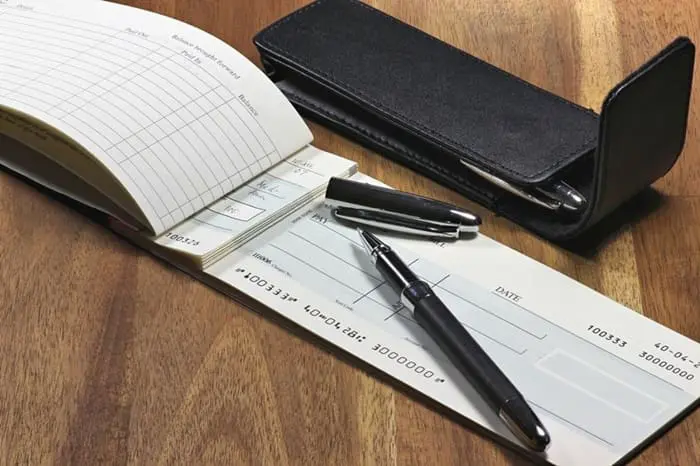Alex Cheong Pui Yin
27th October 2020 - 8 min read

Just as how you would make it a point to keep track of your physical health through periodic check-ups, it is equally important that you also monitor your financial health. This is one of the most important personal financial habits that you can develop as it lets you know where you stand, money-wise. It is only when you are aware of your financial standing that you can proceed to plan your long- and short-term financial goals, investments, retirement strategies, and so on.
Let’s take a look at a few key things that you need to keep track of to maintain good financial health.
Credit score

A credit score is a numerical representation of your overall financial health. It also reflects your creditworthiness, which is a measure of how likely you are to repay your debts in a timely manner.
Financial institutions rely on credit scores as one of the ways to help them decide if they should extend credit facilities – such as credit cards and loans – to a particular applicant. A higher credit score indicates better financial health, which puts the applicant in a better standing with banks.
Some factors that determine your credit score include your total outstanding debt, the types of loans that you are currently servicing, as well as your debt repayment track record.
But what exactly are the benefits of having a high credit score? Does it really have that much of an impact in your life? In a word, yes. Here are some ways how a high credit score benefits you:
Better approval chances
Banks will be more inclined to approve your applications for loans, credit cards, and other credit facilities if you have a higher credit score. This is because it is an indicator that you are unlikely to default on your loans, thus posing a lower risk as a borrower.
Faster approval process
With a higher credit score, your application can be approved within a faster timeframe because it will not need to go through as many approval checks. This means banks spend less time deliberating on your application, which also translates to less fuss and hurdles.
Higher credit limits

While banks typically determine your credit limit based on your income – the more you earn in a year, the more you are likely allowed to borrow – they also take into account the state of your financial health. If your credit rating is good, banks will be more open to trusting you with a higher credit limit.
More options
A good credit score makes you a prime customer for banks, which means that more banks will want to deal with you. In other words, you’ll have the liberty to compare and choose the credit facility from banks that best suit your preferences, instead of being forced to pick from a limited pool of choices that may not meet all your needs.
Better bargaining power
At times, you may find yourself needing to negotiate with your bank for something extra, such as a higher credit limit or more flexible repayment periods. In such situations, a good credit standing will give you better bargaining power; with a solid repayment history and minimal delinquencies, banks will be more likely to approve your requests.
Debt-service ratio (DSR)

You should also take note of your debt-service ratio to check on how you’re doing financially, and if you are taking on too much debt. Simply put, your DSR is the comparison of your available cashflow to your existing debt, and it tells you how much of your income is going into paying off your financial obligations. A high DSR indicates a larger debt commitment, and it is generally agreed that a DSR of less than 40% is optimum.
Banks, too, use the DSR as a way to assess your repayment abilities and to determine if you can still repay your debts should they approve a new credit facility for you. That said, each bank has its own acceptable DSR threshold and do not share a universal DSR benchmark. Some may be more cautious than others, approving primarily applications with DSR of below 40%, while others may accept applicants with DSR of 60% or more (depending on your income band).
Your DSR can be calculated by dividing your total monthly commitments by your nett monthly income. With regard to your total monthly commitments, be sure to include all non-bank debts as well, such as education loans with PTPTN. Meanwhile, nett monthly income is defined as your remaining income after you have deducted compulsory contributions, such as EPF and SOCSO. To illustrate, someone with a total monthly commitment of RM2,000 and a nett income of RM5,000 will have a 40% DSR.
Negative marks

Although this term is not usually used in Malaysia, “negative marks” essentially refer to a range of financial “misconducts” that borrowers have done which consequently affects their credit scores as well. These include actions such as missed payments, loan restructuring, and even too many credit applications within a short span of time. The term is likely derived from the fact that these actions lead to a reduction to your credit score.
Depending on the “misconduct”, they can stay in your credit reports anywhere between one to seven years – although some more serious ones may linger for longer.
Here are some red flags that work against your financial health:
Missed/late payments
Missed payments get recorded in your credit report if you are late by 30 days or more, and will negatively affect your credit score. The severity of this misconduct increases every 30 days it is not paid, and the later you settle your missed payments, the greater the damage that is done to your score.
Loan restructuring
Loan restructuring basically involves altering the type or structure of your existing loan so that you can get some form of financial relief. It usually requires a significant change to the terms and conditions of your existing loan, and a good example would be the conversion of overdrafts to term loans. However, this instrument also leaves a negative mark on your credit report, indicating less-than-stellar financial habits that lead to such a need in the first place.
Irrecoverable debts/Written-off debts
An irrecoverable debt happens when your creditor gives up on collecting a debt from you, believing that you no longer have the ability to repay it. Like other delinquencies, this will also leave a negative mark in your report and can severely affect your credit score, making it difficult for you to qualify for future mortgages, loans, and so on.
On a separate note, some creditors may opt to pass off the account to a third-party debt collections agency, who may then make another attempt at recovering the amount owed. This is called collections, and will leave a separate negative mark in your credit report.
Bounced cheques

Bounced cheques happen when your cheques cannot be processed because of insufficient funds in your bank account. To be fair, bounced cheques may not necessarily get recorded as a negative mark in your credit report, but it can be flagged and will damage your credit score in other roundabout ways. For instance, creditors who do not receive due payment from you because of bounced cheques may report you for missed/late payments instead.
Bankruptcy
Individuals are declared bankrupt by the court of law through a legal proceeding when they are no longer able to repay their outstanding debts. In Malaysia, you can file for bankruptcy if the amount owed is at least RM100,000. While declaring bankruptcy can relieve you of your legal obligations to pay your debts, it will be reflected in your report and can significantly lower your credit score. Consequently, you will find it more difficult to apply for credit facilities from financial institutions in the future.
Legal records/Civil judgment
If you’ve lost a civil lawsuit that requires you to pay debts or damages, these will be recorded as a point against you in your credit report as well. Legal notices and actions that have been taken against you, with regard to your finances, will also be flagged as a form of precaution.
Special Attention accounts
Loans that are marked as Special Attention accounts are typically non-performing loans that financial institutions have placed under special monitoring. This could mean that banks are working on collecting the loan from you after you’ve missed several rounds of payments. Loans that are under special debt management schedules, such as those arranged by the Credit Counselling and Debt Management Agency (AKPK), may also bear such a mark. In some cases, bounced cheques may sometimes appear here too.
***
With this, we hope that you have a better grasp of your financial health, and will be more motivated to keep track of it!









Comments (0)